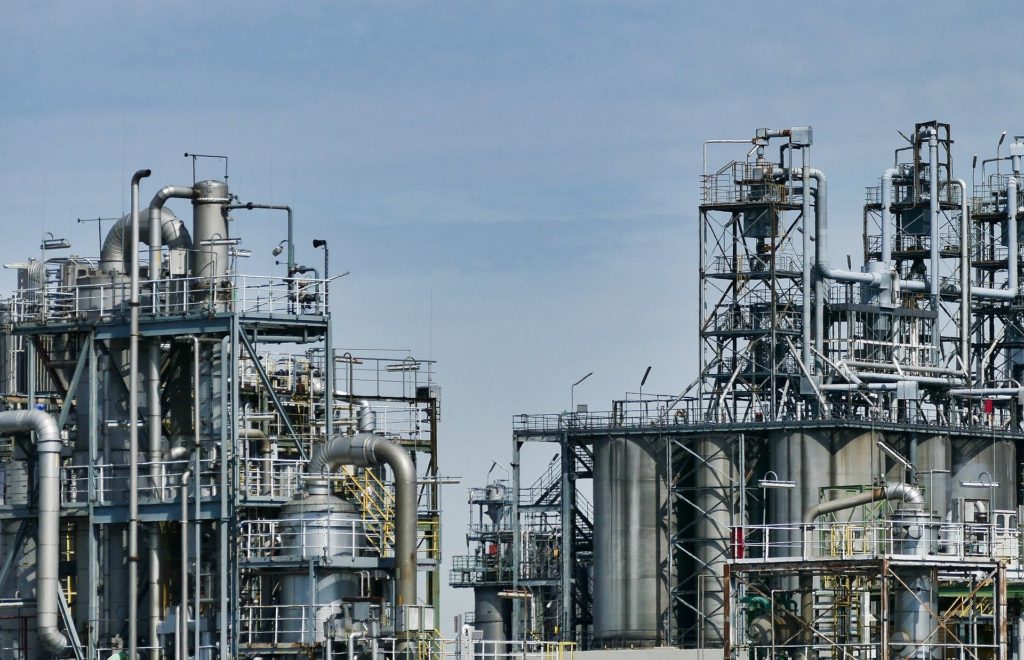Topline
Chemicals which can be used as precursors to chemical weapons are manufactured, stored, and transported around the world in nearly every country, but there are not clear international standards or legal obligations to ensure the security of these chemicals. Since 2015, terrorist organizations and others have used chemical weapons in dozens of attacks in more than a dozen countries, killing thousands and undermining international nonproliferation efforts. These events have caused thousands of casualties and undermined international nonproliferation efforts. The United States is in the position to reduce this global vulnerability and strengthen both the chemical nonproliferation regime and the crumbling chemical weapons taboo.
Problem
People in arguably every country produce, use, store or transport a wide range of toxic chemicals. Under the nearly universal Chemical Weapons Convention (CWC), States have obligations designed to eliminate and prevent development of State-held chemical weapons, but the CWC does little to reduce the risk of non-State actors acquiring chemicals of proliferation concern. Although some State Parties to the Chemical Weapons Convention have developed strong systems for chemical safety, few countries have a solid basis in policy and law for chemical security.
United Nations Security Council resolution 1540 (2004) does legally require all States to take measures to secure chemical weapons “related materials,” including those items in private hands, but many States have been slow to implement these obligations. And while recent administrations took important steps to lessen the risk of nuclear terrorism by securing nuclear materials and dismantling State chemical weapons programs, relatively has been done to secure toxic chemicals, which exist in abundance in nearly every country in the world, all of which can constitute or serve as precursors for chemical weapons, depending on their use. 1See the definition of a chemical weapon in the Chemical Weapons Convention, Article 2.
At the same time, since 2004 terrorists have become increasingly willing to cause mass casualties and disruption and use chemical weapons to those ends, with attacks most notably in Iraq, Malaysia, Syria, and the United Kingdom. These events not only caused thousands of direct casualties, they often massively disrupted local communities and have undermined international efforts to prevent chemical weapons proliferation. The social media misinformation campaigns associated with some of the early attacks proved to be a harbinger of what we would see across the political world.
The United States, with one of the better, if still imperfect, domestic legal frameworks for chemical security and its robust chemical industry, is in a key position to reduce this global vulnerability and re-energize the chemical nonproliferation regime – and the crumbling chemical weapons taboo – by making chemical security a higher U.S. and international priority.
Background
Although many States and industries, based on international standards, have developed robust safety regimes for the many toxic industrial chemicals widely used in commerce, the need to develop international standards for chemical security – and the assistance many governments, industries and communities will need to implement them – has not been a focus of the international community. Reports by the UN Security Council’s 1540 Committee document the relatively low levels of implementation of measures to prevent terrorists and other criminals from acquiring “dual-use” chemicals – those with both commercial and weapons applications.2See the reports by the 1540 Committee to the UN Security Council in 2006, 2008, 20 With a tremendous range of stakeholders, e.g., governments, multiple industries, academia, and threatened communities, among others, building meaningful international or even regional standards for chemical security will require a significant effort by all involved. Such a significant global effort needs U.S. leadership.
The Department of Homeland Security (DHS) has developed arguably the most robust national chemical security regime with its Chemical Facility Anti-Terrorism Standards (CFATS). It has also lead efforts at the G7 Global Partnership Against the Spread of Weapons and Materials of Mass Destruction and, with the Department of State, at the CWC and the Organization for the Prohibition of Chemical Weapons (OPCW). These good efforts create a platform on which the United States can build its leadership, including by strengthening instruments and institutions now under threat, such as the CWC and the Organization for the Prevention of Chemical Weapons (OPCW).
Fortuitously, pursuing chemical security can also help the United States promote chemical safety and attack environmental crimes damaging our efforts to advance economic development in at risk States and protect the oceans, which would help the United States regain some of the trust and moral authority it has clearly lost on these issues. Most important, however, only the United States has the resources to improve chemical security and reduce the risk of chemical terrorism on the global scale.
President should:
Create an inter-agency policy committee on Chemical Security, with DHS as the lead implementing agency. The committee would, at a minimum, conduct a review of federal and state chemical security laws, regulations, policies, and practices, to improve domestic security and identify funding to implement recommendations from the review.
Convene essential international stakeholders to set new standards. The president should propose a High-Level meeting at the United Nations on chemical security and host a Ministerial-Level conference to facilitate the development of agreed international standards for chemical security.
Increase the resources available for chemical security implementation. The president’s budget should double U.S. international assistance for chemical security and, where necessary, seek Congressional authorities for agencies to work in more countries that need such assistance. As part of this effort, the administration should seek increased international assistance efforts for chemical security through the G7 Global Partnership.
Consider international legal and institutional improvements. The administration should consider proposing a chemical security protocol for the CWC or a Global Initiative to Combat Chemical Terrorism. It should also increase support for OPCW’s chemical security efforts and push the OPCW to integrate chemical security more centrally in its policies and practices.
Notes
- 1See the definition of a chemical weapon in the Chemical Weapons Convention, Article 2.
- 2See the reports by the 1540 Committee to the UN Security Council in 2006, 2008, 20



